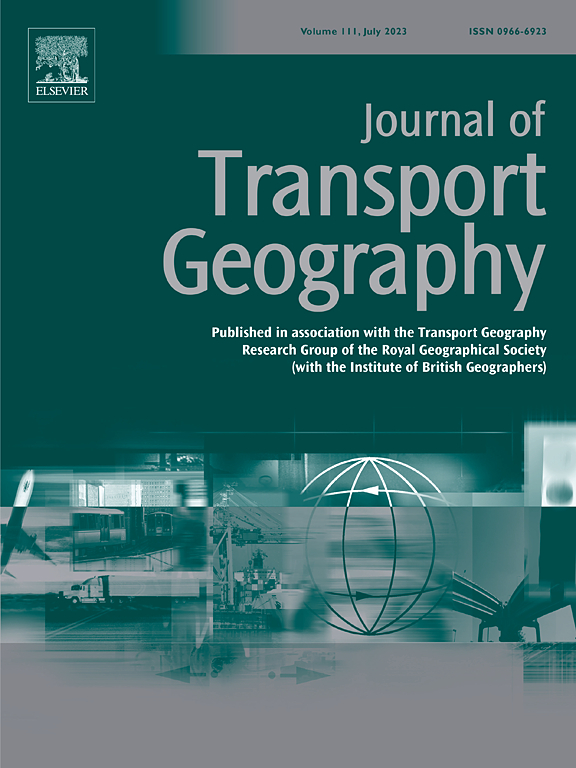城市综合交通网络弹性评估与增强的系统综述
IF 6.3
2区 工程技术
Q1 ECONOMICS
引用次数: 0
摘要
在过去十年中,由于复杂的出行需求和日益增长的系统不确定性,越来越多的学者关注城市综合交通网络的弹性。本文系统总结了城市多式联运网络弹性研究的进展。阐述了城市综合交通网络弹性的概念,探讨了城市综合交通网络弹性的评价指标、评价方法和优化措施。首先,梳理了该领域的研究热点,界定了交通弹性的内涵和范围。然后根据网络拓扑结构、流量分配和多系统要素的耦合对评价指标体系进行了分类。此外,它回顾了定量和评估方法,包括数值分析,目标优化,模拟建模和数据驱动技术。讨论了不同阶段的弹性增强和优化措施,包括规划和设计、应急响应、网络恢复、恢复后和日常运营。研究结果表明,目前的评价体系主要侧重于单模或双模网络,没有充分考虑供需动态以及多模态耦合关系。虽然数据驱动的方法和智能算法在恢复力评估中获得了突出的地位,但它们往往未能揭示恢复力变化的潜在机制。此外,大多数增强战略集中在应急响应和网络恢复阶段,对整个生命周期的关注不足。最后,提出了未来的研究方向,重点是全生命周期弹性规划、多模态网络耦合以及数据驱动方法与智能算法的融合。本文章由计算机程序翻译,如有差异,请以英文原文为准。
A systematic review of resilience assessment and enhancement of urban integrated transportation networks
The last decade has seen increasing scholarly focus on the resilience of urban integrated transportation networks, driven by complex travel demands and growing systemic uncertainties. This review systematically summarizes the development of resilience research for urban multimodal transportation networks. It clarifies the concept of urban integrated transportation network resilience and explores evaluation metrics, assessment methodologies, and optimization measures for enhancement. First, the review identifies research hotspots in this field and defines the connotation and scope of transportation resilience. It then categorizes evaluation indicator systems based on network topology, traffic assignment, and the coupling of multi-system elements. Furthermore, it reviews quantitative and evaluation methodologies including numerical analysis, objective optimization, simulation modeling, and data-driven techniques. Resilience enhancement and optimization measures are discussed across different phases, including planning and design, emergency response, network restoration, post-recovery, and daily operations. Findings indicate that current evaluation systems mainly focus on single or dual-mode networks, inadequately accounting for supply-demand dynamics, as well as the multimodal coupling relationships. Although data-driven approaches and intelligent algorithms have gained prominence in resilience evaluation, they often failed to uncover the underlying mechanisms of resilience variation. Moreover, most enhancement strategies concentrate on emergency response and network restoration stages, with insufficient attention to a full life-cycle perspective. Finally, the paper proposes future research directions, highlighting full life-cycle resilience planning, multimodal network coupling, and the integration of data-driven approaches with intelligent algorithms.
求助全文
通过发布文献求助,成功后即可免费获取论文全文。
去求助
来源期刊

Journal of Transport Geography
Multiple-
CiteScore
11.50
自引率
11.50%
发文量
197
期刊介绍:
A major resurgence has occurred in transport geography in the wake of political and policy changes, huge transport infrastructure projects and responses to urban traffic congestion. The Journal of Transport Geography provides a central focus for developments in this rapidly expanding sub-discipline.
 求助内容:
求助内容: 应助结果提醒方式:
应助结果提醒方式:


